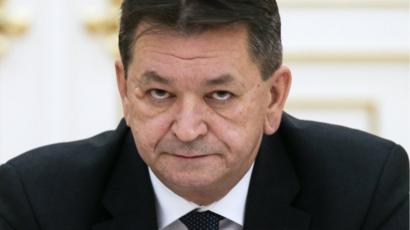Interpol presidency vote: Russia in surprise loss to South Korea

Interpol has elected South Korean Kim Jong-yang as its president, rejecting the Russian frontrunner who had been accused of abusing the international police body’s arrest warrant system.
Mr Kim was chosen by Interpol’s 194 member states at a meeting of its annual congress in Dubai.
He beat Russia’s Alexander Prokopchuk, who had been widely tipped to win.
But there was growing concern that Mr Prokopchuk would use the role to target critics of Russia’s President Putin.
Moscow hit back at what it called a “campaign aimed at discrediting” the Russian candidate.
 Image copyrightGETTY IMAGES
Image copyrightGETTY IMAGESThe election follows the disappearance of Interpol’s former president Meng Hongwei, who vanished on a trip to China in September. Beijing has since confirmed he has been detained and is being investigated for allegedly taking bribes.
Mr Kim, who had been serving as acting president, will serve out the remaining two years of Mr Meng’s term.
Upon his election, he said: “Our world is now facing unprecedented changes which present huge challenges to public security and safety.
“To overcome them, we need a clear vision: we need to build a bridge to the future.”
Why was Mr Prokopchuk controversial?
Mr Prokopchuk is a veteran of Russia’s interior ministry.
While he was Interpol’s Moscow bureau chief, he was accused of abusing the so-called red notice system – international arrest warrants – to target critics of the Kremlin.
There had been growing fears among Russian human rights groups and officials from other countries, including the US and the UK, that Moscow would use his position to target its political opponents.
One group of US senators said electing him would be “akin to putting a fox in charge of the henhouse”, while a prominent Kremlin critic said it would be like “putting the mafia in charge”.
Lithuania, which regained its independence from Russia during the collapse of the Soviet Union and is now a member of both Nato and the EU, had threatened to leave Interpol if Mr Prokopchuk was elected. (BBC)

